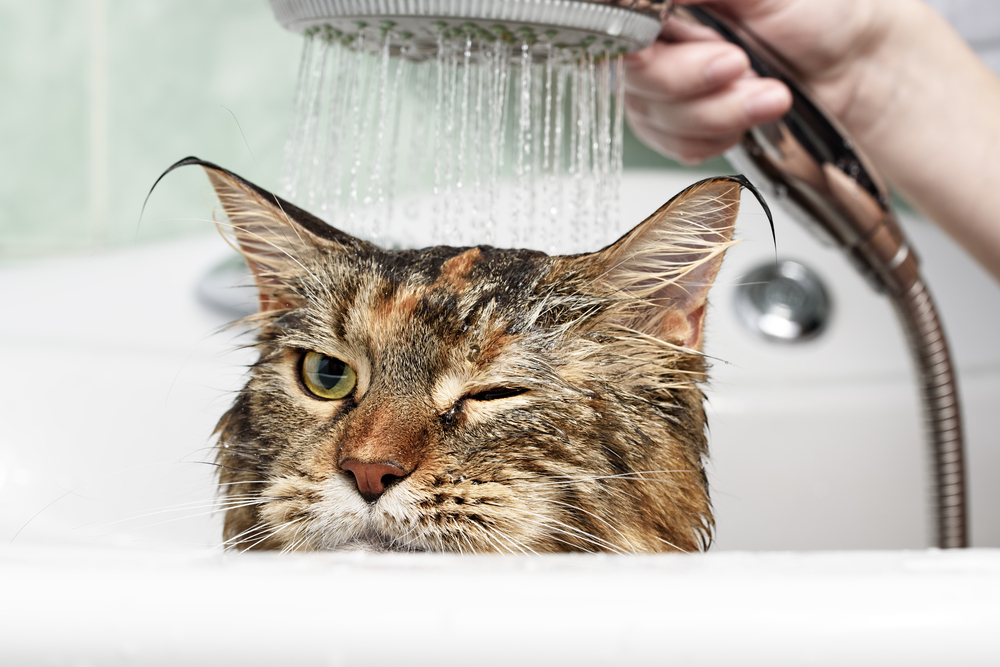If you’ve ever tried to bathe your cat or watched him come racing back into the house when the rain started, then you’ve seen just how much he hates water. Cats and water rarely mix well, and if your cat is tolerant of puddles and rain, then you have a pretty rare kitty.
For most felines, water is a thing to be dreaded and avoided, but there are actually many reasons behind that behavior. Your cat’s aversion to water is caused by a combination of instinct, physical reactions, and past encounters. So, why do cats hate water? The answers can help you better understand your cat’s behavior and lead to better bathing experiences. We’ll also walk you through how to give a cat a bath that hates water.
Lack of preparation
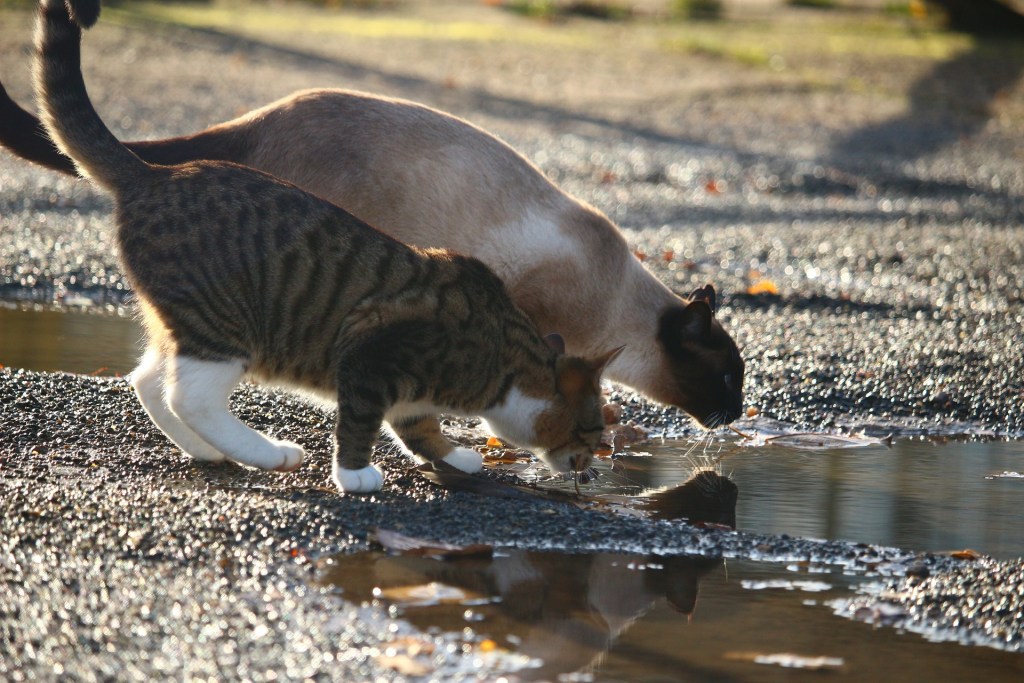
The answer to why cats and water are such a bad match may lie in the cat’s evolution and ancestors. Some feline experts theorize that cats owe their dislike of water to the fact that they originated in dry, desert climates. In these regions, cats were never exposed to rivers and lakes, and rain would have been a rare occurrence. They learned to conserve water during dry spells and didn’t rely on access to bodies of water the way that other species did.
As a result, bodies of water are still somewhat foreign to cats. Sure, our modern cats are exposed to water regularly, but their instincts, which they’ve inherited from their ancestors, are telling them there’s no good reason to mess with the liquid.
The sensation of being in water, such as when your cat gets a bath, can go against his natural instincts to stay safe and in control, too. Your cat can’t easily get out of a slippery tub, and when his coat is weighed down with water, it’s much more difficult to jump or climb away. Your cat will naturally want to avoid all those sensations.
Cold, uncomfy coats
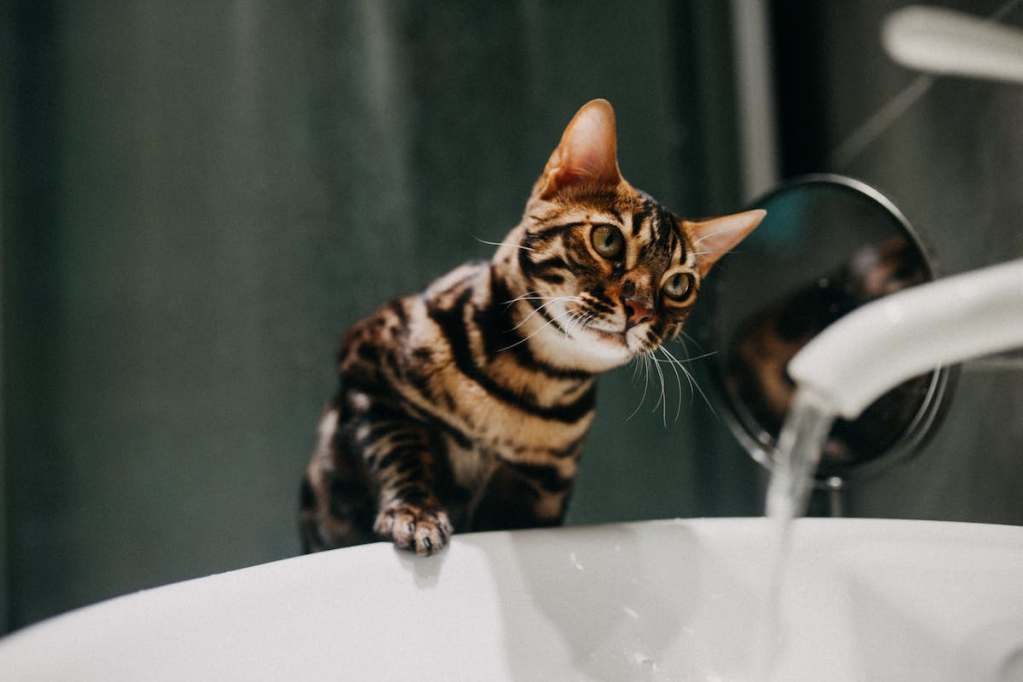
Water can make cats uncomfortable. They spend lots of time grooming themselves and perfecting their coats — and if you’ve ever seen the way that a cat will fastidiously start grooming himself after you pat him, you’ve witnessed this firsthand.
Water messes all that up. A wet coat is heavy, uncomfortable, and even cold. Cats are all about staying warm and cozy, and getting wet goes against those instincts and preferences. As a result, your animal will probably strongly protest if you try to give him a bath, and he’ll quickly retreat if he’s outside when it starts raining. In reality, he may be saving himself extra grooming efforts while ensuring that he stays comfortable by not getting wet.
Bad experiences
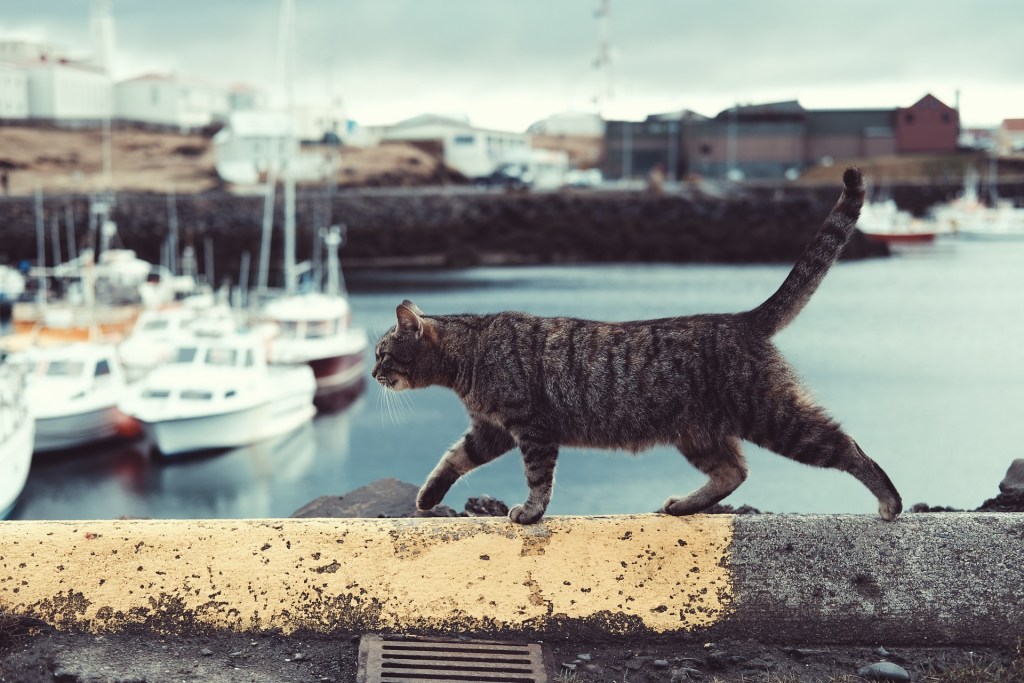
If you’ve ever had to give your cat a bath, it probably wasn’t a positive experience for him. His instincts tell him to avoid water, and getting wet isn’t comfortable, so he probably didn’t enjoy the bath at all. Chances are, your cat remembers that experience all too well, so if you try to give him another bath, his reaction will be even stronger than it was for the first bath.
You don’t necessarily have to be the one to have given your cat a bath and established that negative association. Sometimes kittens have to be bathed for health and hygiene reasons, and that negative memory would have been established early on.
How to give a cat a bath that hates water
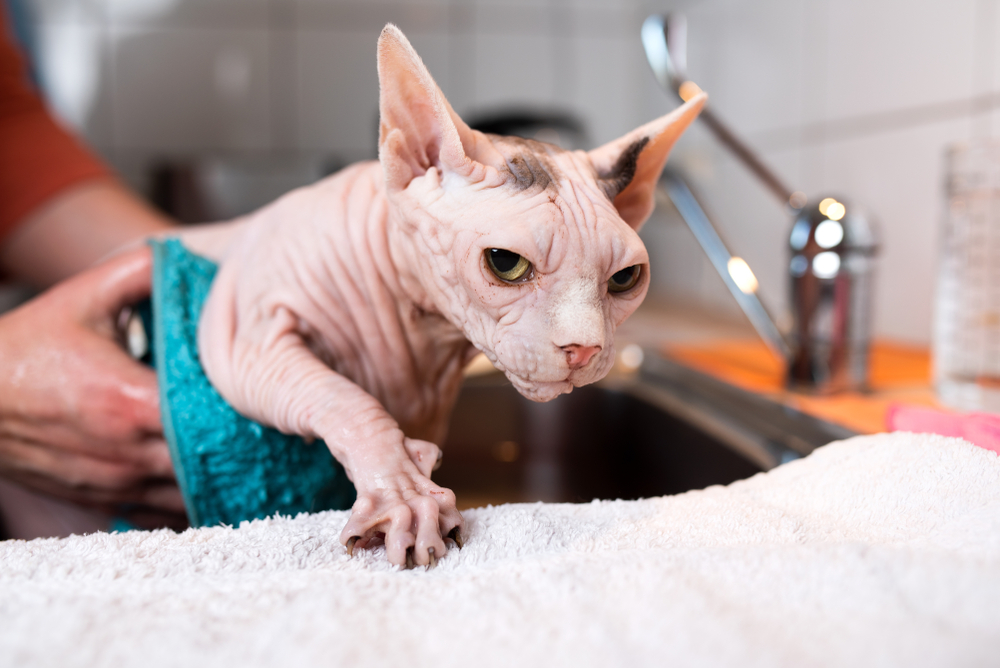
You should begin to get your kitty used to water before you even dive into bath time. Experts recommend bringing your cat into the bathroom with you while you shower and starting by just wetting his paws. Slowly work your way up to a full-on dunking, and even then, you can keep his head above water. Some pet parents elect to use the sink instead of the tub for better control and less splashiness.
Once you have him used to it (or as close as you’re gonna get) you can move on to the actual cleaning part of the process. Use only pet-safe shampoo and a cat brush if needed. Start by wetting him down, and then lather the shampoo into his fur, just as you would your own hair. Rinse him off quickly and avoid eyes and ears throughout. Lastly, have the towels ready to go — lots of them!
Final thoughts

If your cat hates water, there’s probably not much that you can do to change his mind. When you do need to bathe him or get him wet, keep in mind that multiple factors are influencing how he feels about water and how he’s behaving. If he’s squirming and trying to get away, remember that it’s not a personal insult against you — it’s just his instincts and him fighting against something that he feels he needs to avoid.
When bathing your cat, try to keep the process as quick and as easy for him as possible. Have all your supplies ready to go, and consider wearing thick gloves to protect your arms from scratches. It’s best to also have a second person available to help. Finally, be patient and gentle with your cat, even if he’s upset and trying his best to get away. Nothing about having a bath is natural to him, so try to be patient and just support him through that process.
